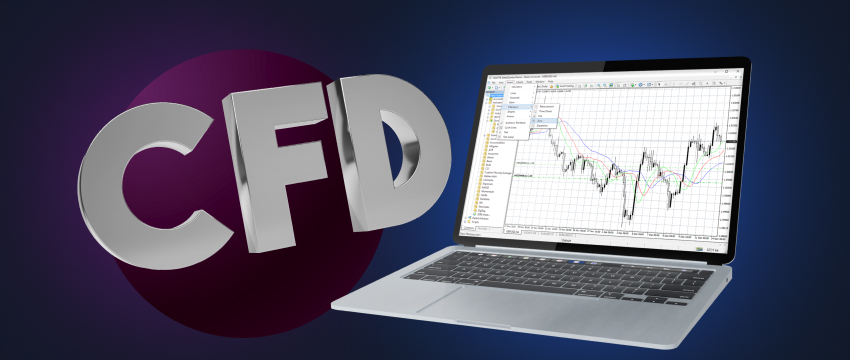To start with, what is a Contract for Differences (CFD)? A CFD is an agreement between a seller and a buyer. That requires the buyer to pay the seller for the difference between the asset’s current value and its value at the time of the contract.
Traders and investors can profit from price movement using CFDs even if they do not own the underlying assets. The price difference between the entry and exit points of the trade solely determines the value of a CFD, not the asset’s underlying value.
This is done without using any stock, 外汇, commodity, or futures exchange. Instead, it is done through a contract between the client and the broker. Over the last ten years, a number of major advantages have driven the enormous popularity of CFDs in trading.
Most people new to trading find it difficult to learn how to trade forex and CFDs profitably on a regular basis. This article explores the possibility of making consistent profits from trading forex and CFDs, along with a few useful tips for traders to help them succeed in the markets!

How do CFDs work?
CFD trading is an advanced trading strategy that should be used by experienced traders. With CFDs, no physical products or securities are delivered. A CFD trader never truly owns the underlying asset but instead they pay the difference in price between the opening and closing of the contract. For example, a trader can simply speculate on whether the price of gold will rise or fall rather than buying or selling actual gold.
In essence, CFDs allow investors to speculate on whether the price of the underlying security or asset will increase or decrease. Traders are able to speculate on both upward and downward price movements in the price of the underlying asset. The trader who bought the CFD will offer to sell it if they notice an increase in the asset’s price.
There is an estimation of the net difference between the purchase and sale prices. The trader uses their brokerage account to settle the net difference, which represents the profit from the trades.
Conversely, a trader may initiate a sell position if they think the asset’s value will decrease. The trader needs to buy an offset trade to close the position. They settle the remaining amount of the loss in cash through their trading account.

How to make money through CFDs?
How can a trader of CFDs consistently generate revenue? The truth is that it is not possible. It is just a trading myth that one must end every trade in profit. When discussing long-term strategies for consistently making money with CFD trading. Professional traders may be consistently profitable on a daily basis. But even they are unable to provide a trading report that does not also include regular losses.
You might find it difficult to trade CFDs if you have trouble accepting losses. Even experienced traders who have been trading for decades admit that less than 40% of their trades end up profitable. Some people even cut it to 20%.
It requires a great deal of self-discipline to acknowledge when you make mistakes in your decisions, assuming your strategy allows it, and to exit a losing trade quickly with a little loss. On the other hand, not closing a profitable trade too soon requires just as much courage. It will take patience on your end.
Tips for CFD traders
A trader must first design or modify their trading strategies to suit their risk tolerance, trading schedule, and personality. Before implementing any strategy, it should be historically backtested and its average effectiveness should be determined. You have to understand that past performance does not guarantee anything because it is not a reliable indicator of future performance.
Second, in order to be able to consistently implement his or her strategy, a trader needs to cultivate a specific mindset.
Trading discipline has received a lot of attention, but organisation has received relatively little of it. The starting point is your trading routine. To minimise the random factor in your trading, you must follow an accurate trading plan that will encompass the majority of your trading activity. Many inexperienced traders acquire bad trading habits. For instance, they might overtrade once, get lucky, keep going, and ultimately destroy their account.
After making a profit in this manner once, such a trader has reinforced a losing trading habit that is almost hard to break. After all, how is that person supposed to be organized and cautious when they trade, given that overtrading has proven so profitable for them? Like anything in the world of trading, enhancing good trading habits may help you become profitable in CFD trading. However, this is not always the case.

Advantages of CFD trading
Greater Leverage
Leverage is greater with CFDs than with traditional trading. In the CFD market, standard leverage is governed by regulations. Leverage varies and different brokers provide different leverage. Reduced margin requirements translate into higher potential returns and less capital required by the trader. However, higher leverage can also amplify a trader’s losses.
Access To The World Market Using A Single Platform
Numerous CFD brokers provide products in all of the major global markets, enabling access around-the-clock. CFD trading is available to investors on many international markets including forex, metals, futures, shares, commodities or indices.
No Stock Borrowing or Shorting Regulations
Some markets prohibit shorting, requiring traders to borrow the asset before selling short. There are also differences in margin requirements between long and short positions in some markets. Because the trader does not own the underlying asset, they can short CFD instruments at any moment without incurring borrowing costs.
Expert Performance Without Fees
Many CFD brokers offer the same order types available to traditional brokers, such as stops, limits, and contingent orders with terms like “if done’ and ‘one cancels the other.” Certain brokers will either charge a fee for the service or find another way to cover their expenses.
When the trader pays the spread, the brokers profit. They occasionally impose fees or commissions. A trader has to pay the ask price in order to purchase, and the bid price in order to sell or short. Depending on how volatile the underlying asset is, this spread could be tiny or large. Frequently, brokers offer fixed spreads.
No Requirements for Day Trading
Some markets restrict the number of day trades that traders can make within a certain account or require minimum amounts of capital for day trading. These limitations do not apply to the CFD market, and any account holder may choose to day trade. Although brokers frequently set minimum deposit requirements of $5,000 and $2,000, they often allow opening accounts for as little as $1,000.
Numerous Trading Possibilities
Brokers currently offer CFDs for stocks, indexes, treasury, currencies, sectors, and commodities. This makes trading CFDs an alternative to exchanges for investors interested in a variety of financial instruments.
Final thoughts
When choosing whether or not to trade, you should weigh the benefits of CFD trading against the drawbacks. Naturally, nobody offers a guarantee of success. If you properly analyse the market, select a winning strategy and are consistent and flexible in your approach, CFDs can potentially present excellent opportunities.
免责声明: This material is for general informational and educational purposes only and should not be considered investment advice or an investment recommendation. T4Trade is not responsible for any data provided by third parties referenced or hyperlinked in this communication.




